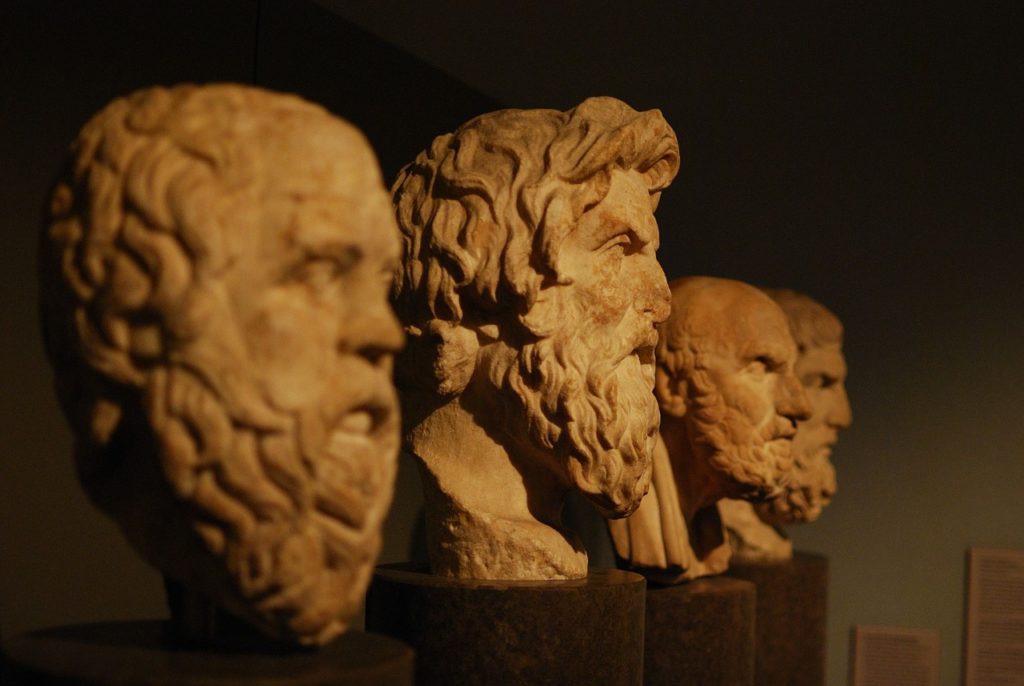In Nicomachean Ethics, Aristotle discusses morality, the good, and virtues. In Book III, he dedicates a few pages to courage.

Courage in Aristotle’s View
For Aristotle, courage is a virtue marked by moderation, a balance between recklessness and excessive fear.
A courageous person is one who can endure the risk of death, particularly in war, “in the midst of the greatest and most glorious dangers.” But there is a condition: their actions must be guided by reason. In fact, reason must lead to the conviction that facing dangers is beautiful, meaning it aligns with the highest values of the city. Without the nobility of the motive behind the action, there is no true courage.
Aristotle examines five forms of courage, or rather five behaviors that more or less resemble courage as he defines it.
Civic Courage for Aristotle
This is the form that comes closest to true courage. Indeed, “citizens, it seems, face dangers as much out of fear of the penalties imposed by laws and dishonor as out of desire for honors.” It is therefore driven both by the pursuit of honor and the will to avoid shame. The courage of troops compelled by their leader is of a lower order, as these men act out of fear not of dishonor, but of punishment. They are forced to appear brave, but the goal they seek does not align with their conduct.
Martial Attitude
Courage can also come from experience with the proximity of dangers: professional troops know how to distinguish between a situation with no real risk and a true danger. However, this only gives the appearance of courage, as this experience allows them to recognize the real nature of danger, but not to face it bravely. Thus, professional soldiers may seem courageous in the presence of dangers they alone know to be harmless, only to turn and flee when a real threat emerges.
Courage from Anger
The courage that comes from anger is again just the appearance of true courage. Choices made under the influence of passion are not driven by a pursuit of honor. This is the courage of animals. A man driven by passion only becomes truly courageous if he is first guided by reason and pursues a noble goal.
Courage from Confidence
The courage of overconfident people is not true courage. Their confidence stems only from past victories and from believing they have nothing to fear. It is, therefore, a reassuring illusion. When a setback occurs, that confidence crumbles.
Ignorance of Danger
Finally, ignorance of danger cannot be equated with courage. It is merely carelessness.
For Aristotle, courage is an individual and warrior-like virtue. It is only realized through noble action carried out for a noble cause. This virtue fits within the framework of Greek society’s values: it is the city that determines what is noble or shameful. Courage, though an individual virtue, is thus politically constructed.
“The courageous man is as free from fear as man can be. While even he feels fear in things not beyond human strength, he faces them as he should and as reason demands, for a noble cause.”
— Aristotle, Nicomachean Ethics
Read also Understanding Absolute War and Real War in Clausewitz in Five Minutes.
